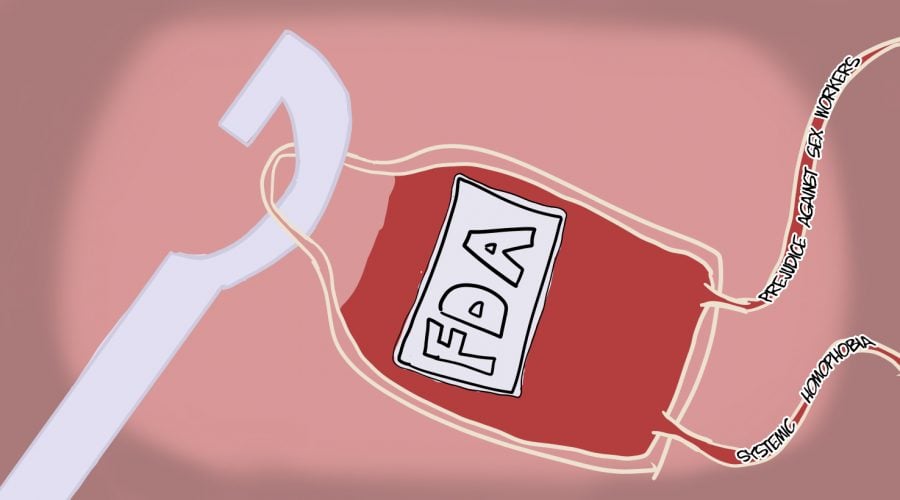Sexuality should not be barrier to donation
Will you donate blood?
Can you donate blood?
It’s not as simple as, “Do you have any blood-borne illnesses that could make your blood unusable for our services?”
While there are understandable restrictions on donations as it relates to medical conditions, there are some that remain outdated. The Food and Drug Administration, which regulates blood donation centers, states on their website, FDA.gov, “The FDA’s priority is to ensure the high level of safety of our blood supply, which is critical to patients who need these life-saving products.”
Men who have had sex with other men, according to the FDA’s regulations, are not allowed to donate blood for 12 months after engaging in sexual activity. This is, apparently, to prevent HIV/AIDS from being transferred to the person whose blood is used. This stems from the idea that HIV/AIDS is a disease exclusive to gay men. While the AIDs epidemic in the ‘80s primarily affected gay men, that does not mean that every gay man has AIDs or HIV, and therefore would be a risk for blood donation centers.
The Center for Disease Control and Prevention recommends that everyone between the ages of 13 and 64 be tested for HIV so they know their status. In cases of having had sexual contact with someone who may have HIV, lab tests should be performed both initially as well as 45 days after contact. Why, then, does the FDA require a year of abstinence for a gay man to donate blood? If the concern was regarding HIV, shouldn’t someone who has been tested twice, both initially and after 45 days, and has negative results be able to donate blood?
The rule used to be a lifelong deferral for any man who had sex with another man. In 2015, the FDA changed it to a 12-month deferral after a sexual encounter between two men. While a step in the right direction, it does not erase the homophobic (and cis-normative) aspects of the rule. Is it really a fear of HIV/AIDs leading this deferral, or is it a fear of gay people?
Another element that I believe needs to be changed is the deferral related to sex work. The banning of sex workers from donating blood only furthers the stigmatization of this field of employment. Not only is the idea of sex workers as somehow “dirty” antiquated, but it is offensive. Sex workers, in many cases, get tested more regularly and thoroughly than non-sex workers. Getting tested regularly is a key part of their very employment.
Allowing gay men and sex workers to donate blood would not inherently lower the level of safety for the blood supply. The FDA could tackle this by simply changing the question, “Are you a male who has had sex with other males?” to “Have you been tested for HIV/AIDs and other STDs since you last had sex?”
The FDA can continue to ensure the safety of their blood supply without perpetuating damaging stereotypes. More people will be able to donate, and blood banks will have an even larger, and safer, supply. According to the National Institute of Health, sexually transmitted HIV can affect people regardless of sexuality. 28 percent of HIV transmissions in 2010 were caused by heterosexual contact. Changing the question to one that asks about testing and status, as opposed to sexuality, would be more beneficial for both the blood banks and the potential donors.
Donation rules regarding sexuality are not something those working at your local blood bank will be able to change. This is an issue that stems from the FDA, so we must encourage the FDA to continue to reevaluate their current regulations. They should acknowledge the social stigmas that have shaped their ideas and rules.
People still need blood. Blood donations save lives on a daily basis. But we must continue to critique the institutions that perpetuate prejudice under the guise of safety.
So donate blood if you are able. Donate for the people who cannot. Donate, but remain critical.









